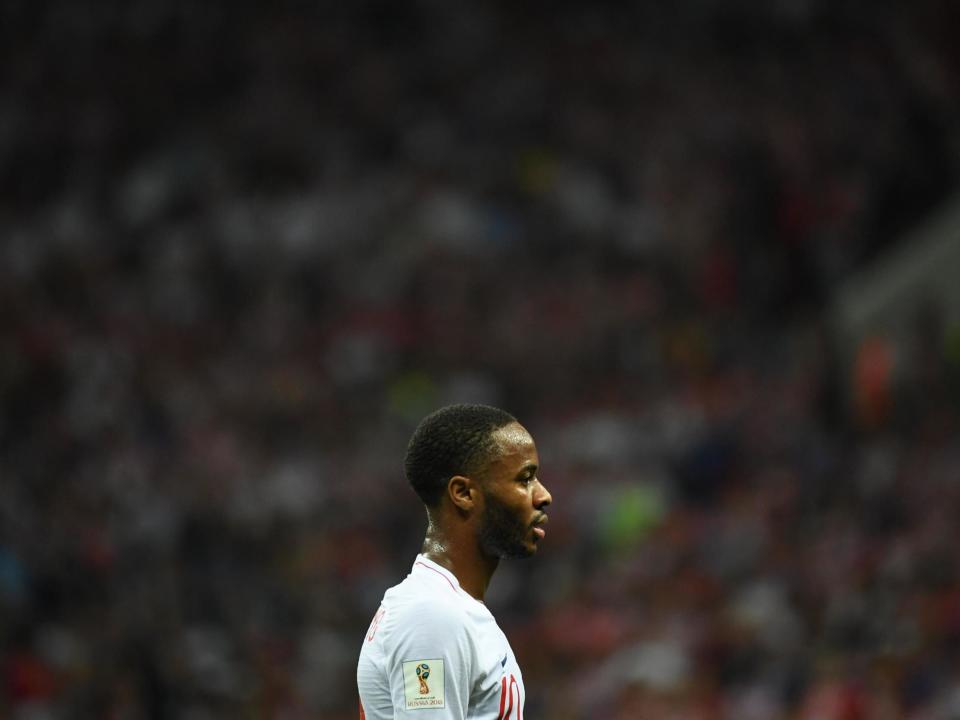The demonisation of Raheem Sterling has been led by white men in the media – there is a solution
There is no question about it. The racism and vitriol towards Manchester City and England forward, Raheem Sterling, is largely due to his portrayal in the media. The negative narrative has been consistent and callous. It has been led by white men.
Raheem spends too much money. Raheem doesn’t spend enough money. “Jamaican-born Raheem” has let the Three Lions down. Benched Raheem has been taught a lesson.
On Sunday, the 24-year-old took a stand against the treatment he has endured with a switched-on Instagram post. Responding to the vile abuse he received from a section of Chelsea fans – four of whom have been suspended pending an investigation – he chose not to post an anti-racism slogan or ask the authorities to do more to tackle racism. He got right to what he saw as the heart of the issue – he called out the media for the treatment of all young black footballers.
The example he used to support his point was hard to challenge. The same newspaper that had applauded young City star Phil Foden for buying his mother a £2m house, directly questioned his 21-year-old black teammate Tosin Adarabioyo for doing the exact same thing. The difference in headlines and tone was staggering, underlining Sterling’s point that the media was treating black players differently.
It’s nothing new. The voices of black men and women have long been completely absent in the coverage of tennis superstar Serena Williams. And away from sport it wasn’t so long ago decisions were made to crop the gravestone of Mark Duggan’s daughter for an image used widely in the media. Quite simply, it didn’t fit the narrative.
So why is this happening?
My firm belief, and that of the many, many black journalists I have spoken to over the past 48 hours, is that the root of the problem is in the newsrooms where a lack of diversity is resulting in uninformed decisions. There are no black voices where it matters. The black community is hugely under-represented in the media, so it is no surprise the narratives being set do not take into account the consequences of consistently portraying black people in a particular light.
So how bad is under-representation?
The Black Collective of Media in Sport (BCOMS) research this year looked at 338 roles at major sports events across the written and broadcast sports media. We found just one black sports writer was sent to cover the World Cup out of 63 journalists from the national newspapers sent to Russia. There were also just three women within the 63.
Assessing the picture more broadly, we don’t have a single black sports editor across the mainstream national newspapers, and a tiny number of black writers. The excellent Alex Scott, Rio Ferdinand, Ian Wright, Eniola Aluko and Jermaine Jenas featured at the World Cup this summer but dig a little deeper into the reporting and under-representation in presenting roles remains a big issue.
So what is the solution?
BCOMS has organised conferences to discuss these pressing issues. Our unfunded network of journalists has acted as mentors to talent and lobbied the industry decision makers behind closed doors. Our research has dispelled the suggestion that there isn’t a problem. Early next year we will release a guide to increasing diversity that all the sports media will receive.
However, we can’t do this alone. The decision makers hold the key to progress here. If they approach this issue with the same professionalism and investment they did when the industry went digital, the diversity challenge will be a thing of the past. That is missing.
If they choose not move on this with urgency, sports men and women may well decide to take matters into their own hands and blackout a media that is unrepresentative and out of touch. Look at the power of Raheem’s actions. Imagine if other sports stars followed his lead? It would be truly game changing and move the industry leaders to deliver diversity with the urgency now required.

 Yahoo News
Yahoo News 

